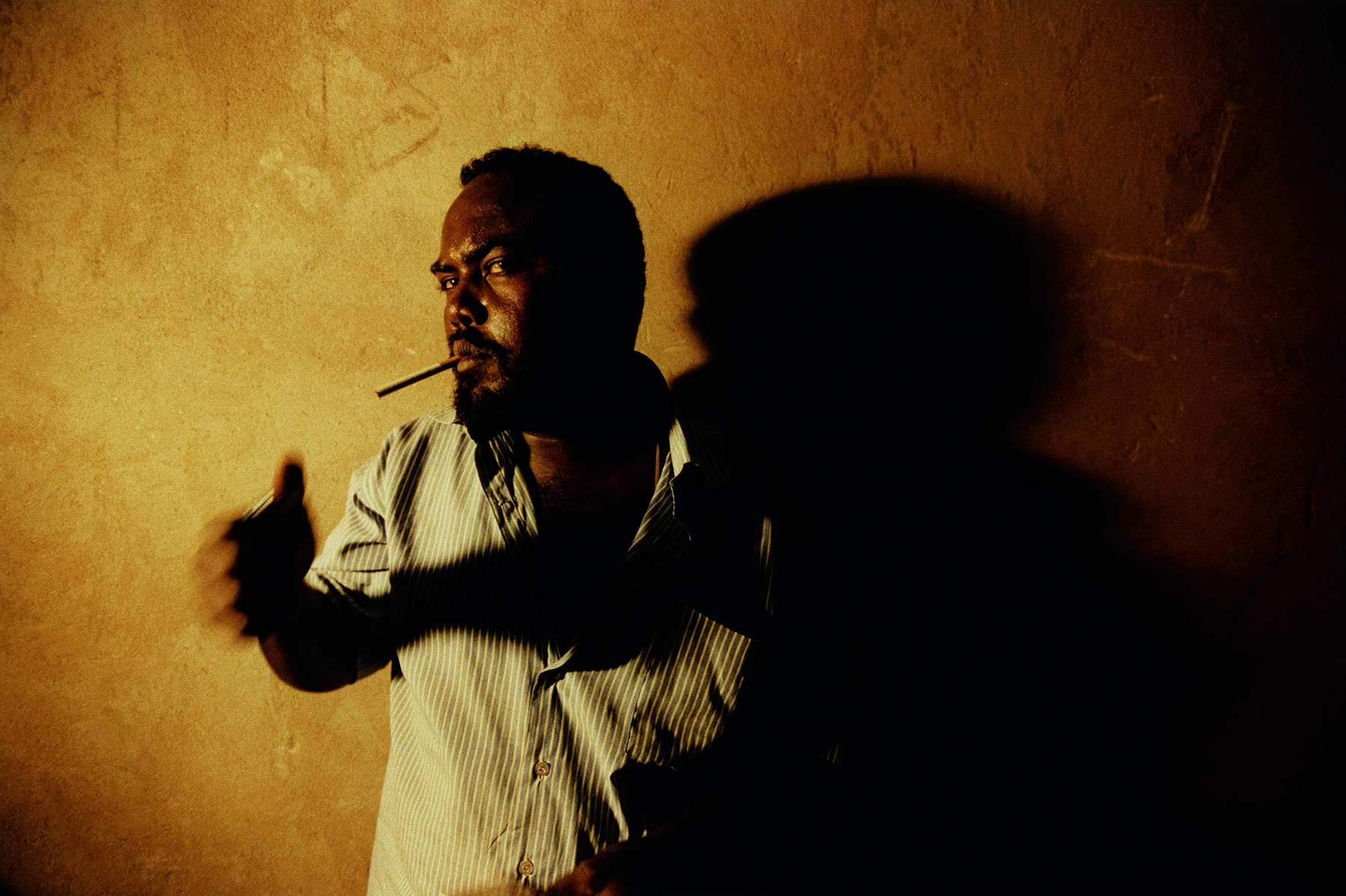
SE008
BOSASSO, SOMALIA- JANUARY 2007 Watching over a group of refugees at one of his network's safe houses hidden deep in Bossaso town?s back streets, thirty-four year old ?big fish? smuggler Omar lights a cigarette.Working at sea since he was a teenager, Omar spent years helping local fishermen to hunt down sharks for their fins but illegal commercial fishing put an end to the business. He involved himself instead in the arms trade, ferrying weapons to and from Yemen. War in Somalia provided him with new financial rewards however when Bossaso became the country?s hub in human trafficking, as more and more people began to flee the brutal fighting while warlords tore the country apart.The financial rewards for him are the main draw. He now makes a minimum of $5000 per month ferrying migrants and refugees across the Gulf of Aden to Yemen; far in excess of the average income of just $100 a month in Somalia.Omar may be a big fish in Bossaso but he is just part of a bigger countrywide chain. His unnamed network has offices in Mogadishu, Belet Weyne and Galkayo in southern Somalia, and Burao on the Ethiopian border. ?These tahrib pay $20 to one of our offices before making their own way here- a receipt then guides them to me when they get here and I charge $50 to get them to Yemen but then the boat owners and agents take commission, and of course we have to pay off the authorities?.Omar is just one of eight key smugglers working in Bossaso linked to an international network of agents and traffickers. He shrugs off the violence and death perpetrated at the hands of his men. When he looks at the forty migrants in his charge waiting to board boats to Yemen that night he calls them ?blood money?.
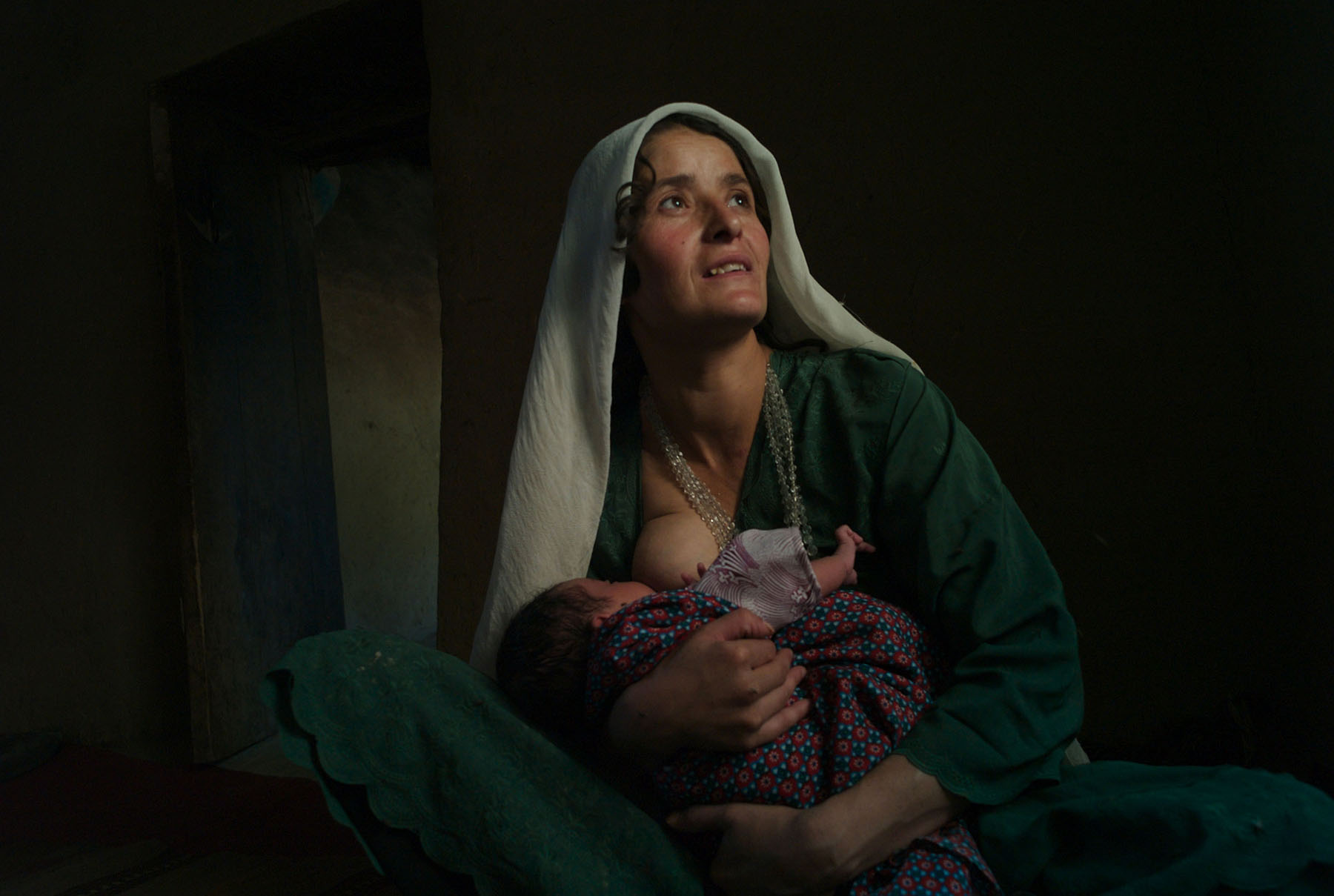
SE006
SHAHR-I-BUZORG, AFGHANISTAN- AUGUST 2008 Siamoy breast feeds her month old baby boy Hokim as she goes to visit her sisters at their home in Khourdakon village. Situated in the remote mountainous province of Badakshan, the area has the highest rate of maternal mortality in the world.
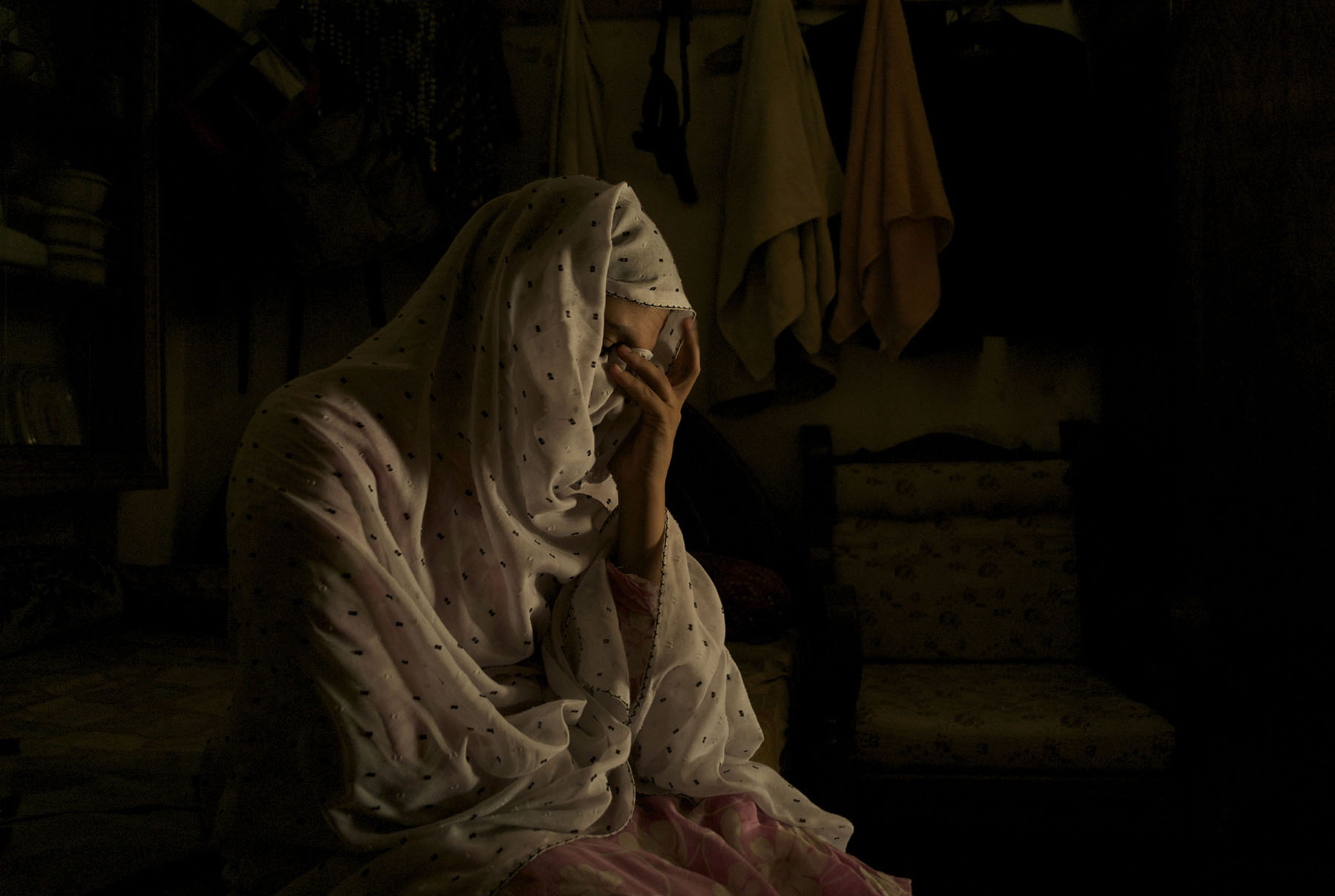
SE005
MATTA THASIL, PAKISTAN- JUNE 2010 Twenty year old Sana sits breathing heavily, distracting her gaze by forcing one fist into her other hand. The family who own this cramped house in a distant battle damaged village in Upper Swat, have given her a temporary place of refuge. Sana is on the run from the Taliban.Three hours drive distant, Sana?s home lies in the steep forested hills of the Piochar Valley. As the Taliban moved their insurgency from Pakistan?s tribal areas into the government administered regions of Swat and Buner in 2007, one of their key tactics was the abduction or forced indoctrination of children. From as young as ten years of age, boys were trained as fighters and suicide bombers, or used as porters and as spies. The Taliban also actively sought out unmarried girls. It was quite usual that young children entered homes in the rural villages, selling popcorn, sweets and household items to female residents that live behind a strictly imposed purda. Going about their household chores one day, Sana and her mother were hushed as a local Taliban commander and his men came knocking on the door. The forty year old Talib?s name was Nisar but he was renowned among the villagers as Commander Ghazilala. Sana only caught a glimpse of him but she recalls an old looking man, ?He was wearing a black turban and was bearded. He looked strong and menacing; like a fighter?.Sana had heard of other local girls that had disappeared, rumoured to have been taken up into the hills to be enslaved as Taliban wives, but as the insurgents continued to mass in the valley, there were too many other fears that preoccupied her mind.Commander Ghazilala had summoned Ahmed as Sana?s wali, or guardian, to demand that he be given the then teenage girl as his bride. There was to be no negotiation and no dowry. The demand was simply, ?If you do not give this girl in marriage, then you will not live. We will slaughter your whole family?. Ahmed had little choice. He arranged to hand over San
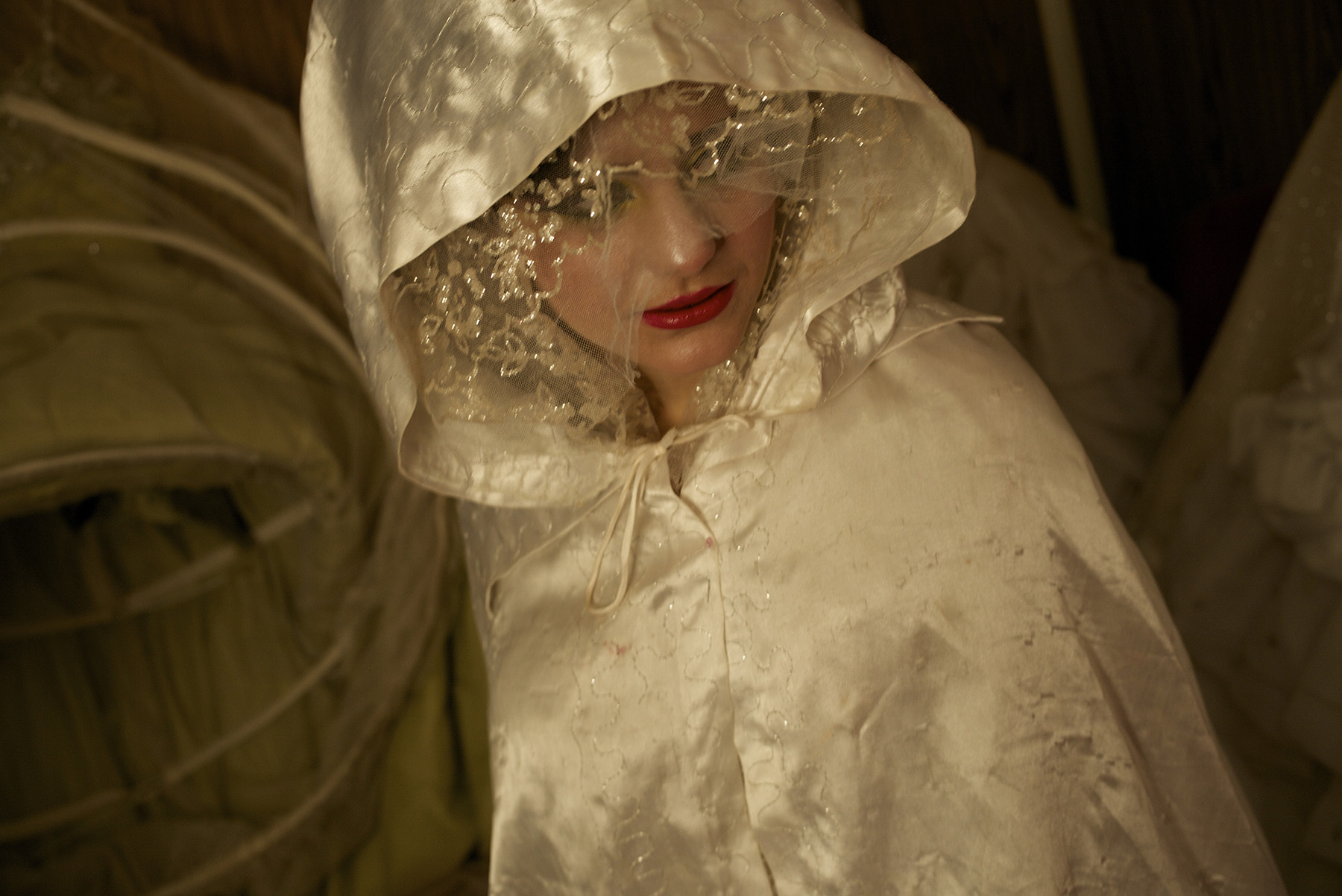
SE052 Syrian Refugees New Lives
ZAATARI, JORDAN: JANUARY 2014 Putting on a burnouse for modesty, eighteen year old Syrian bride Juzlan gets ready to leave the salon where she has spent the entire morning preparing to be wed as a refugee. Marrying the boy she fell in love with at college two years ago, Juzlan and her fiancÈ made the decision to go ahead with the ceremony fearing that it may be years before they can return home. Venturing out into the muddy streets of Zaatari Camp, Juzlan takes deep breaths. Her mother Jamalat cries, ?My eldest son is in Syria and he doesn?t even know his sister is getting married today. Last night one of our relatives was killed and one was injured. Syria is on our minds all the time?.
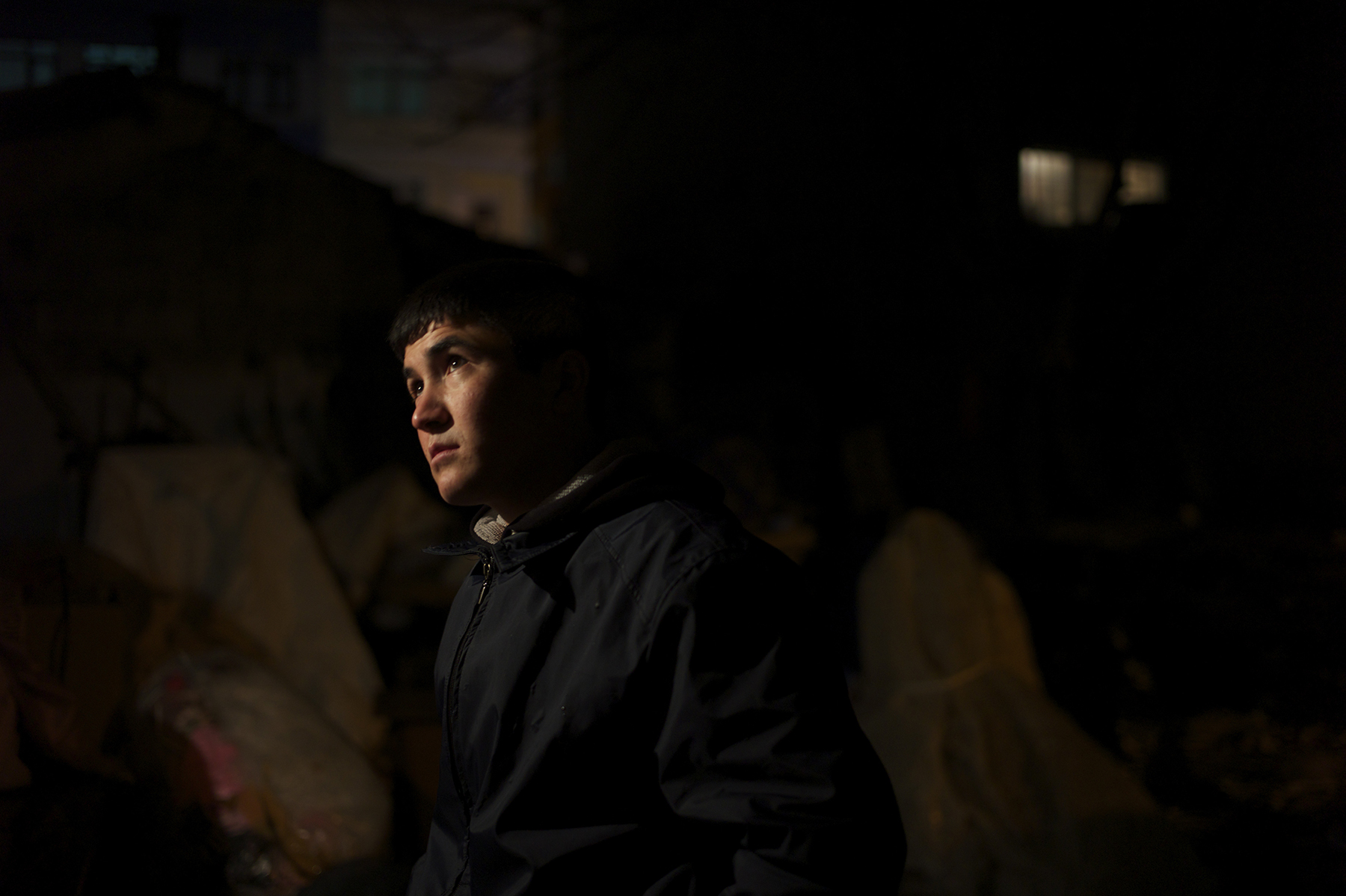
SE047
ISTANBUL, TURKEY- JANUARY 2012 Collecting his war-wounded father Tordi from the rubbish depot where he works, fourteen year old Abdul Hashim stands looking up at the lights of the apartment blocks in the Istanbul suburb of Zeytinburnu. Travelling to Turkey with his fifteen year old brother Hakim, the boys are working in an illegal sweatshop as they try to finance the next stage of their journey on to Europe. Having barely seen the light of day since making the dramatic journey from Afghanistan, the two young brothers are squatting illegally in the factory while in transit, briefly reunited with their father after he escaped from Afghanistan three years ago. ?We have spent all our time in Istanbul underground but the most difficult thing for me was crossing the borders on the journey here. Life here is better because we don?t have any issues with security but I miss home a lot and just hope that I can go back home one day?.
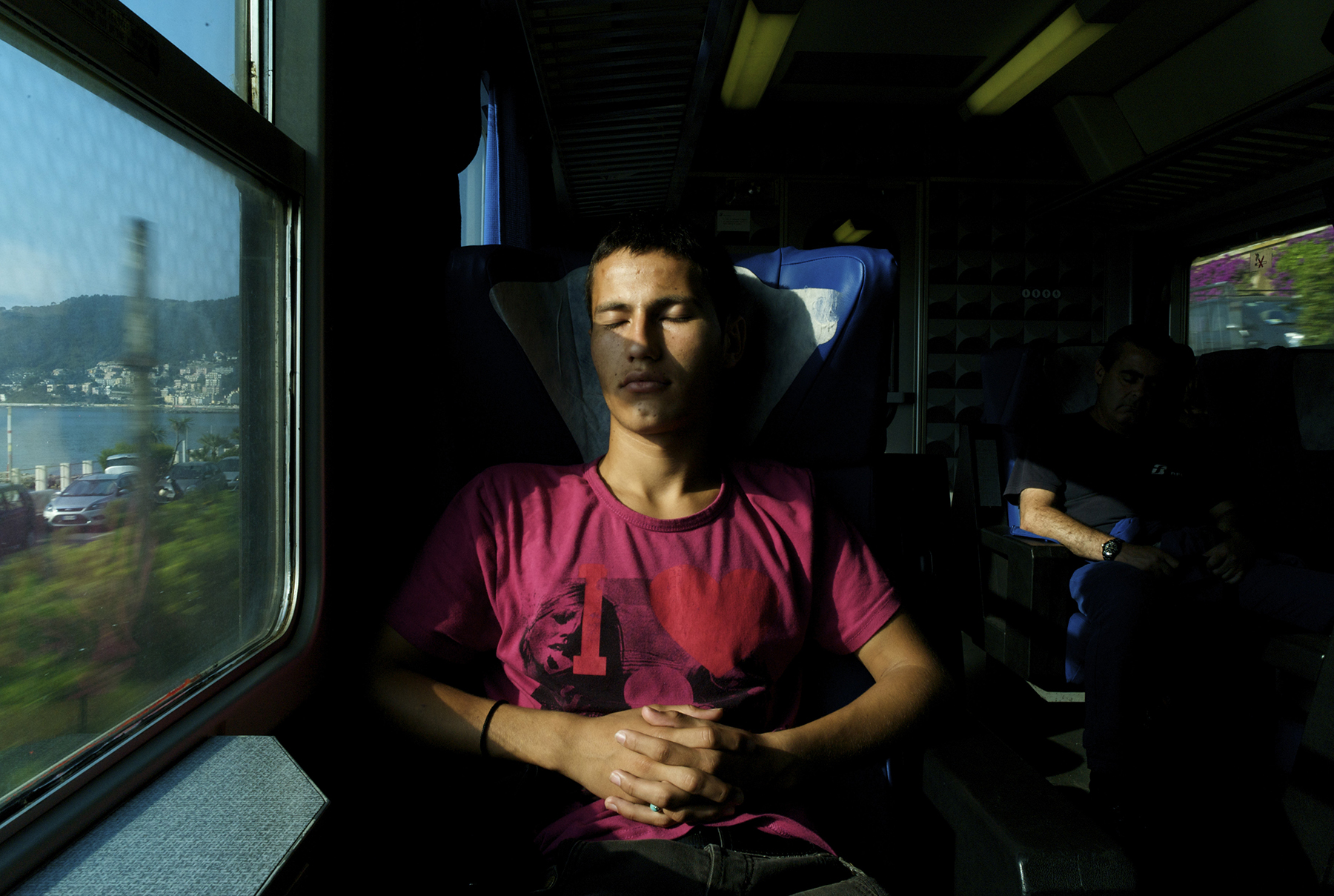
SE055
VENTIGMILIA, ITALY- JULY 2012 Travelling through the night over the past eleven hours, fifteen-year-old Taqi sleeps on a provincial train as he travels along the Riviera Coast towards the Italian border town of Ventigmilia. Unable to buy an international ticket without documents, Taqi is hoping to evade police and guards at the frontier town, switching onto a French train that will take him across the border to Nice and then Paris. Spending just one week transiting through Italy, the teenager who was left orphaned by the war in Afghanistan has spent the entire journey lost in his dreams. His hope is that by the evening he will be one step closer to Sweden and to helping build a new life so that can support his impoverished mother.
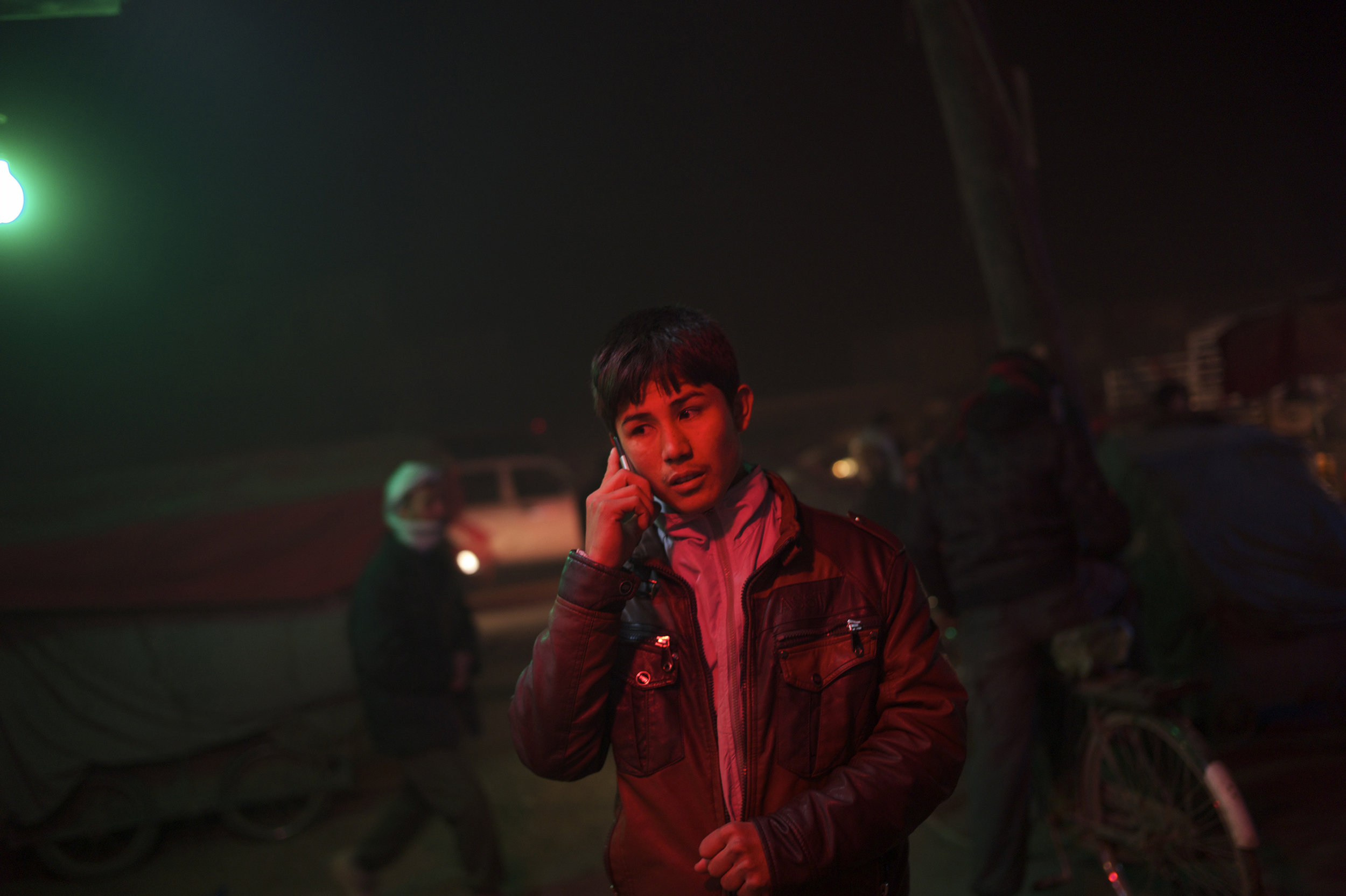
SE046
KABUL, AFGHANISTAN- DECEMBER 2011 Calling to a friend from his mobile phone, fifteen year old Mohammad Ali stands waiting at the busy Mazari Chowk as he changes buses on his way home from a karate competition. Growing up as a refugee in Hazara Town, Quetta after his family escaped Afghanistan?s civil war, Mohammad is back in Kabul for the second time in seven months after his deportation from Turkey. Determined to support his family, he does not plan to stay long, ?It?s hard to be in transition and now I need to be prepared for a new life again?.Two kilometres up the road from the chowk in the Hazara district of Dasht-e-Barchi, Mohammad and his nineteen year old sister Mina are squatting together in the basement of a hospital that is now their new home and business. ?My only other brother is deaf and dumb and my father?s eyes became weak and stopped working so even though my family wanted me to study, I never really had the chance to go to school. Where we lived in Quetta it was not very developed and the people were looking down on us Afghans. My sister Mina was a karate champion in Pakistan and even though she won thirty-two international medals nobody was happy that she was doing sport. Our family decided to sent the two of us to Kabul to open a gym?. Newly arrived in Afghanistan, it is taking time for Mina?s notoriety to draw the crowds they had hoped for among the area?s youth. Sleeping behind a curtain alongside their baggage in the unheated cellar, the brother and sister open at eight o?clock each morning, spreading out the red and blue floor mats hoping that newcomers will sign up for the classes, ?Now we have seventy students at the gym but even after nearly seven months it?s not enough to cover the rent?.Out on the streets of Kabul, Mohammad is lost in his own world, staring blankly at the teenagers gathered around a milkshake stall. Compelled to support his family, he wants to move on from karate and fight for a better chance, ?Two years ago I left Quett
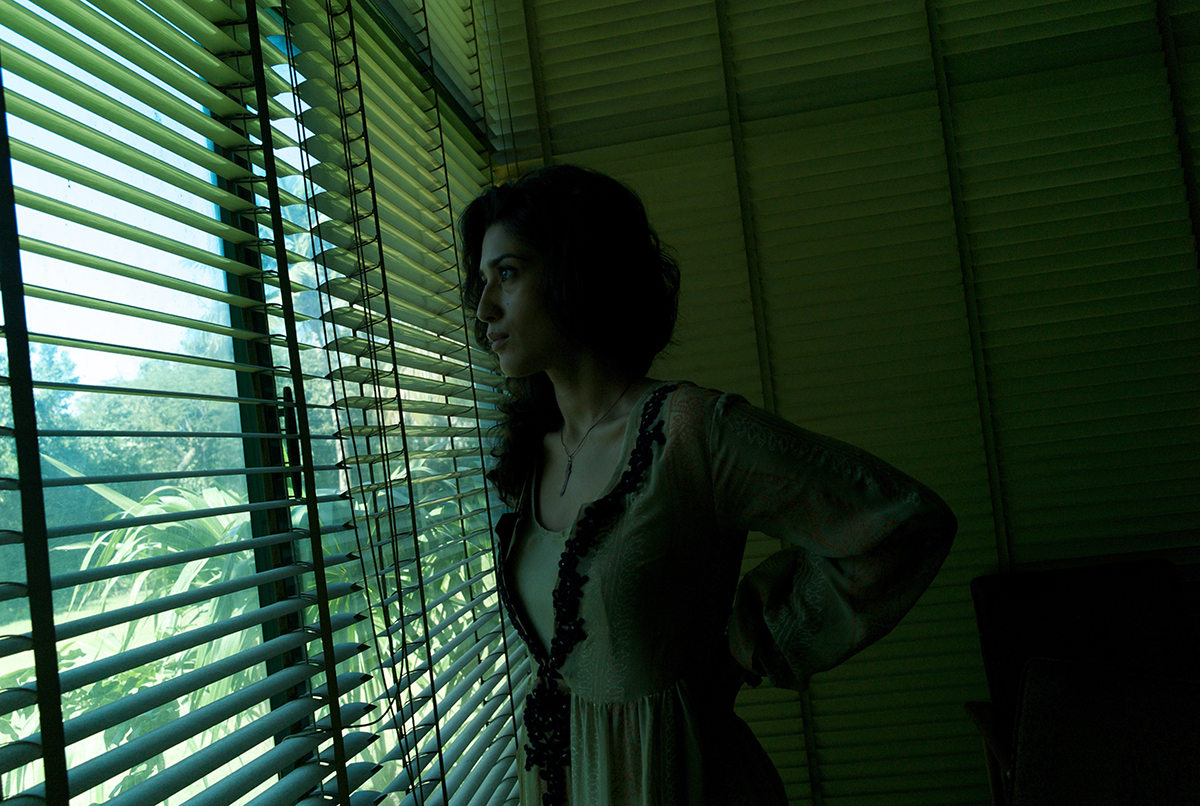
Twenty seven year old author Fatima Bhutto looks out through some slatted blinds to the garden at her family's Clifton residence in Karachi.
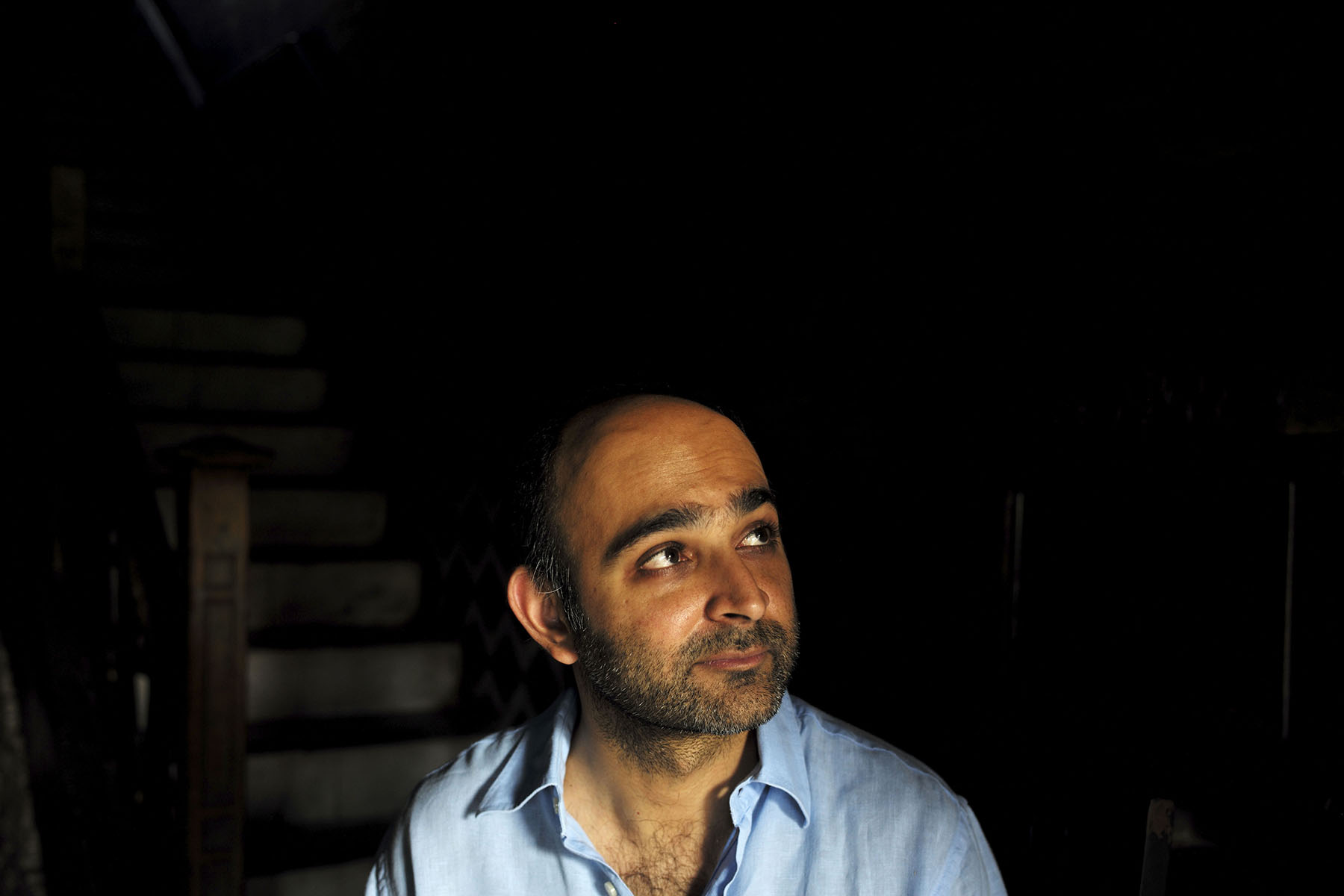
LAHORE, PAKISTAN; AUGUST 2103 Award winning Pakistani writer Mohsin Hamid is pictured in the deark interior of an old house in Anarkali, Lahore?s red light district. The author of Moth Smoke, The Reluctant Fundamentalist and How to Get Filthy Rich in Rising Asia, Mohsin returned to his native Punjab four years ago after half a life spent in London, New York and on the road.
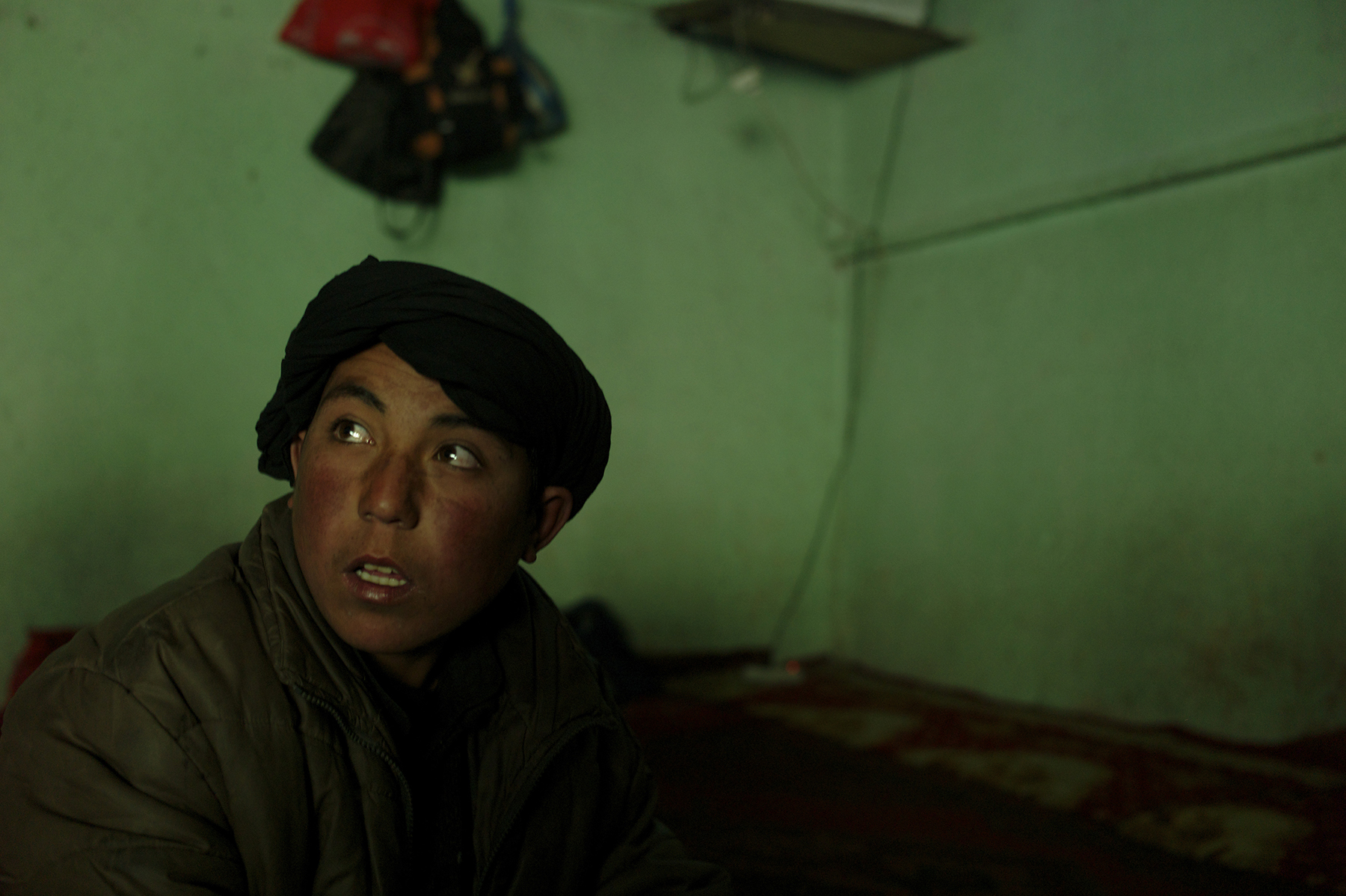
SE046
KABUL, AFGHANISTAN- FEBRUARY 2012 Transiting through Kabul from the snow-covered mountains of Badakshan, fourteen year old Hussain sits waiting out a cold evening at a green painted mosafer khana in Kabul?s Company bus terminal. Bound for Iran with a group of thirteen travellers to whom he has been entrusted, the young boy has been sent away by his father to search for work and education. Headed south to the smuggling town of Zaranj, Hussain faces a long and risky journey through the deserts on his escape from Afghanistan.
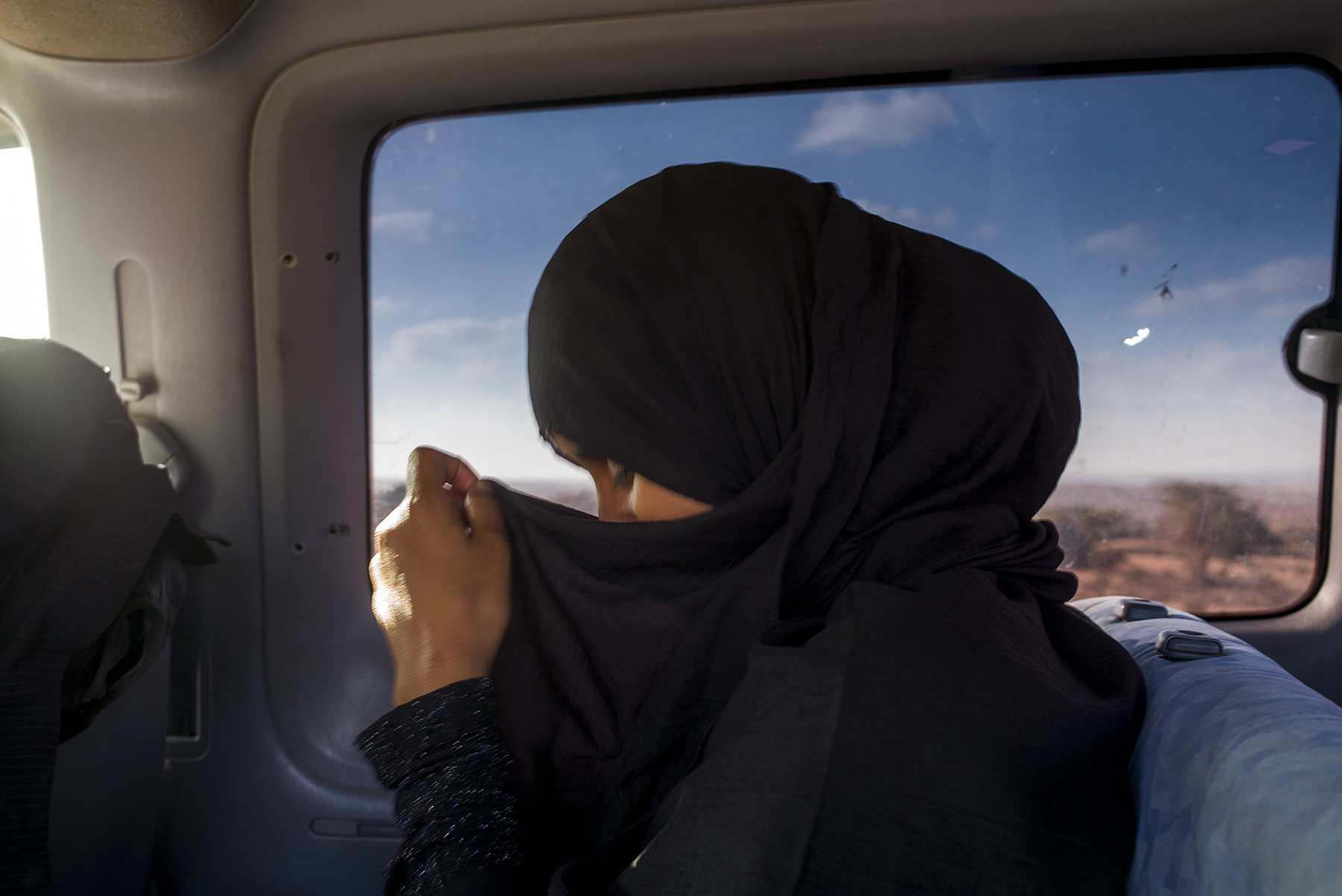
Somalia, Somaliland, Berbera, February 2018 Travelling from Berbera by bus through the desert landscape, Khadra covers her face as she makes her way to Hargeisa. Working for a local organisation that helps identify vulnerable refugees, Khadra is following a group of Yemeni women who arrived by boat in Somaliland three days earlier. Alixandra Fazzina / NOOR
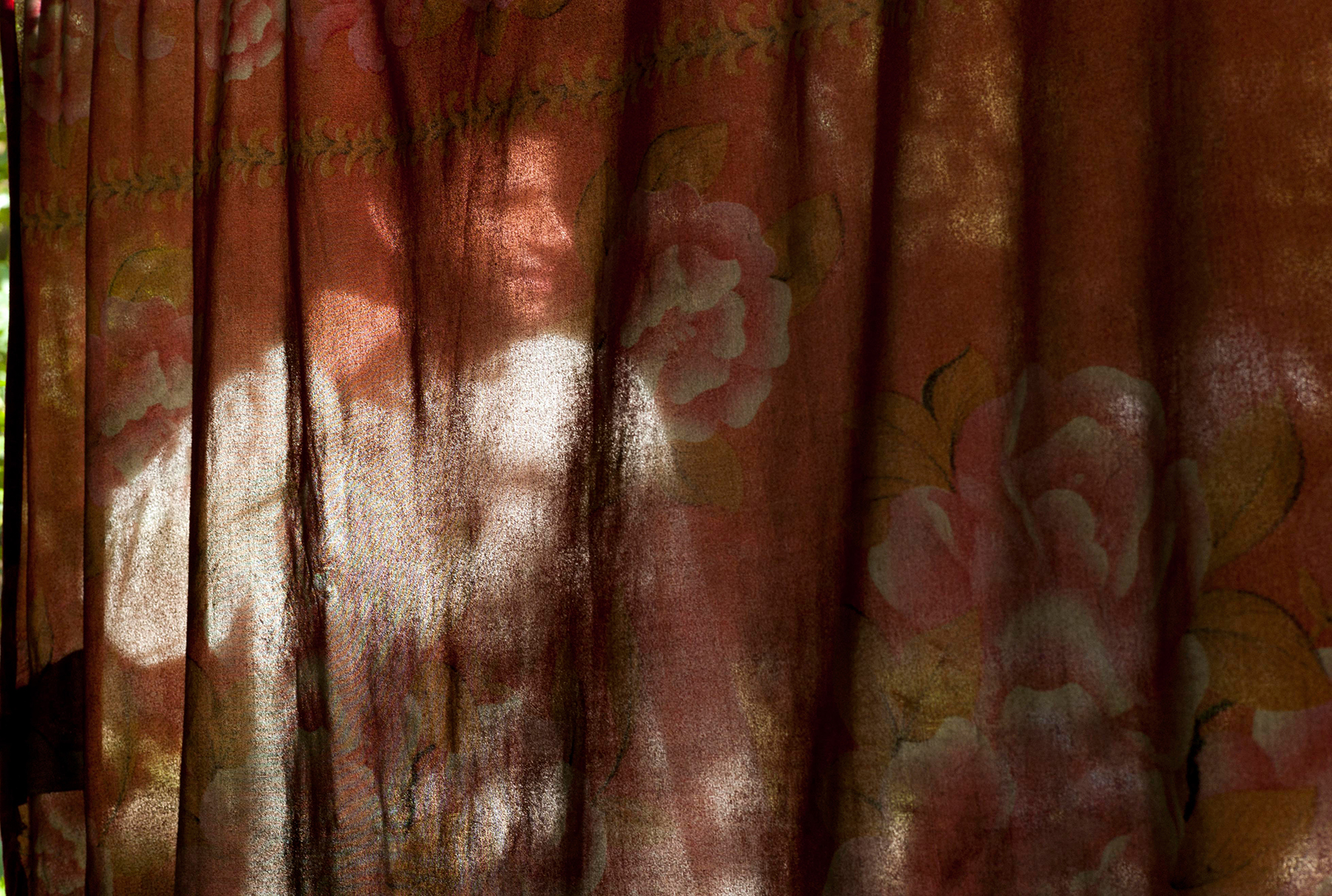
MINGORA, PAKISTAN- MAY 2010 Seen through a flower patterned purda hung up between the trees, men enjy the sunshine at a shack on the banks of the Swat River. With much of the tourist industry devastated during the war, the first fish restaurants and tea houses are just beginning to open up in time for the summer.
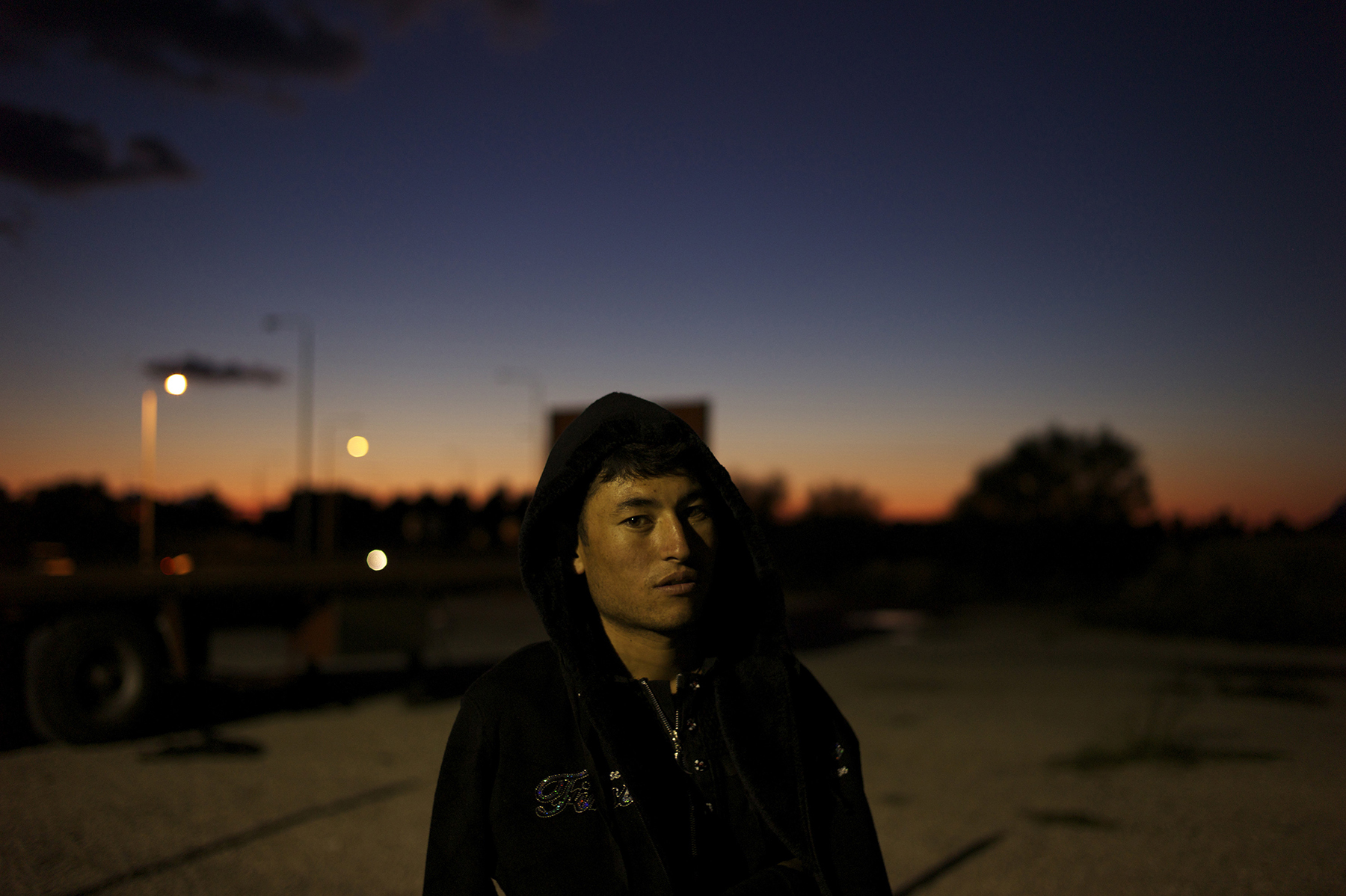
SE044
PATRAS, GREECE- OCTOBER 2011 On a patch of wasteland beside the Silk Road petrol station in Patras, sixteen year old Ali makes his way at dusk from the tiny cardboard-built shack that he shares with eleven other unaccompanied minors from Afghanistan at a spot known by the refugees as Pump Benzene Camp. Four years after arriving in Greece, Ali is even more desperate then ever to make the dangerous onward journey to Western Europe, spending each afternoon and evening at the nearby traffic lights waiting for his chance to jump aboard a truck that will take him across the Ionian sea to Italy. ?We were four friends from Ghazni when I first came here at twelve years old but they have all moved on and I?m still stuck. I can?t count the number of times I?ve been on the trucks but I just keep getting caught. Now because of the new port it?s even more difficult; there are cameras and four checkpoints whereas before there was only one. If I were aware of how I would end up then I would never have come to Greece. I?m the unlucky one?.
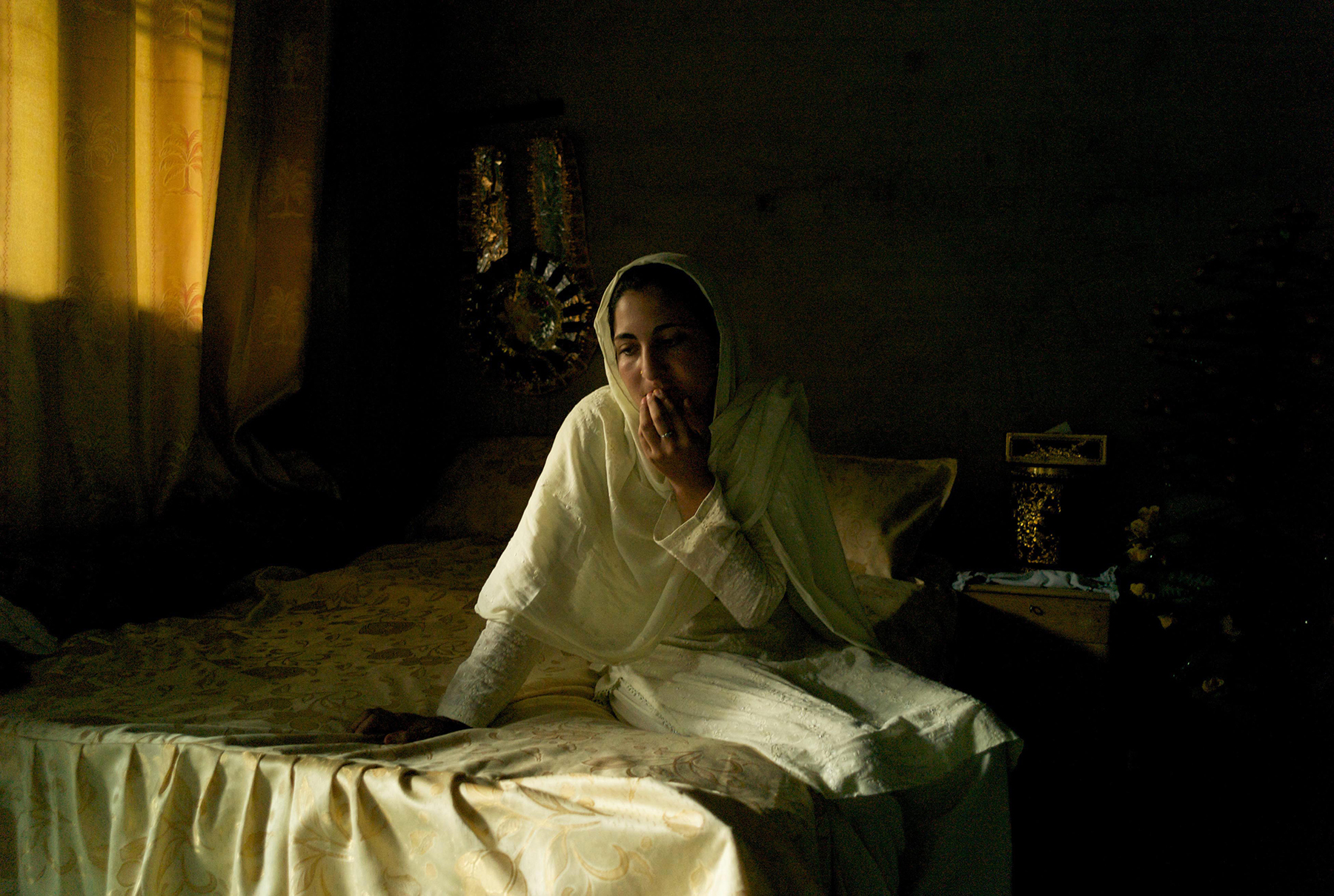
CHARBAGH, PAKISTAN- AUGUST 2009 Twenty-eight year old mother of six Taslim sits in a state of depression on her marital bed following the beheading of her husband by the Taliban. Taslim's husband Sher Ahmed was returning home for the weekend after finishing his duties as a policeman in Matta when Taliban insurgents captured him and cut apart his body on video as a lesson to other security forces. Wed to Sher Ahmed at just eleven years of age, Taslim still can't believe that her loving husband has been killed and waits each night for him to come through the door. Now on medication, she finds it tough to bring up her six young children without any male figure in the family. "The most difficult thing is that we are alone. The house andmoney mean nothing- I have lost my husband... The Taliban are bad people. They are not Muslim".
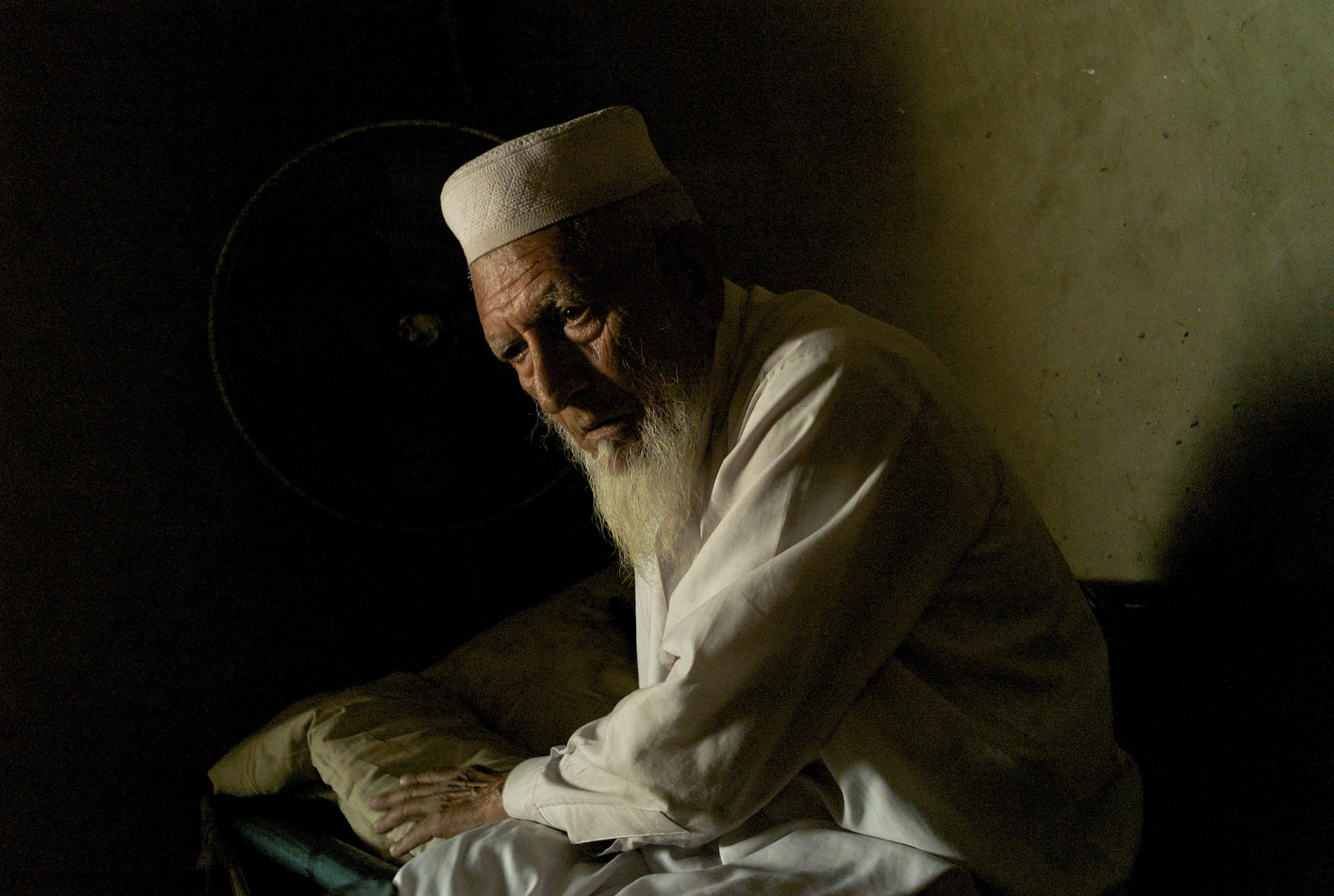
SE011
JALOZAI, PAKISTAN- JUNE 2011 Wounded by shrapnel during intense fighting in Bajaur, sixty-eight year old Mahmood uses the one arm he still has movement in to lift himself of his bed. Formerly a farmer in the village of Loi Sum on the Afghan border, Mahmood watched his seven year old daughter Usma fall dead from a gunshot wound to the head at the start of the conflict between the Taliban and the Pakistan Army, ?The firing was so indiscriminate. I received shrapnel in my right shoulder so there is no life in my arm anymore?. Fleeing for their lives, Mahmood, his wife Islam Bibi and seven children escaped the tribal areas for Pakistan?s largest IDP camp at Jalozai where he subsequently suffered a stroke, ?Now I can longer do a thing by myself- not even take a bath. We should have received compensation for Usma?s death of for my injuries but we haven?t got a penny. We have lost everything?.
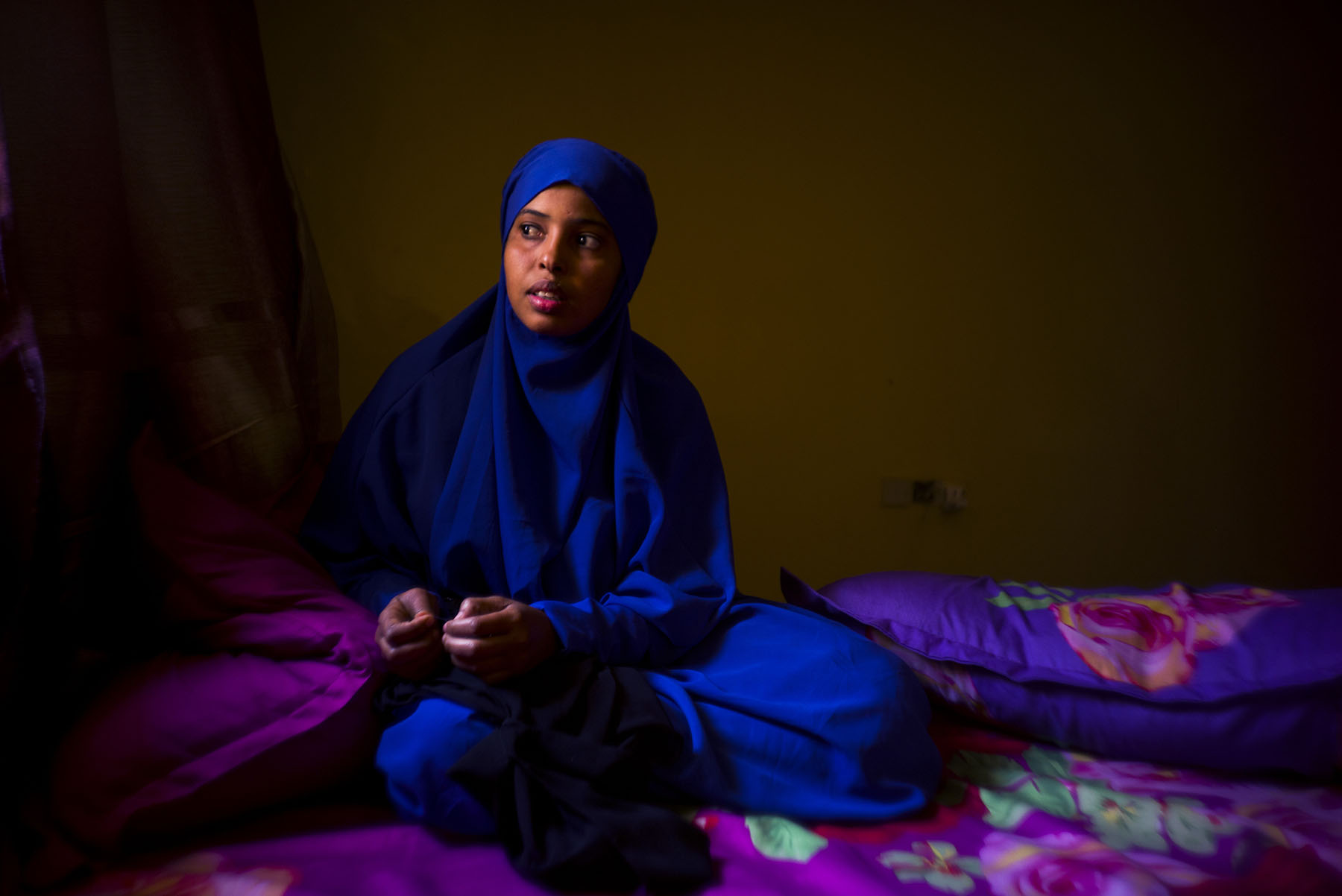
Somalia, Somaliland, Hargeisa, February 2018 Loosing her entire family on Bisatine’s frontline, Kharia fled by boat across the Gulf of Aden alone as a schoolgirl in a desperate search. “I spent sixteen days searching through the rubble until I finally gave up. I met some of my neighbours who told me that everybody had run away and that I should follow them to Somalia since I would probably find my family there”. Arriving in Berbera, Kharia was robbed of her money, phone and documents leaving her no means to even begin tracing her family. Two years later, the eighteen year old has found herself completely alone in the world, isolated but protected in a women’s refuge. “When I was a girl, I used to dream that I would be a doctor. Now I dream that I am being killed again and again. Each night in my dreams I get shot and lie bleeding in the street in Aden. Nobody even comes to help me. I am completely alone”. Alixandra Fazzina / NOOR
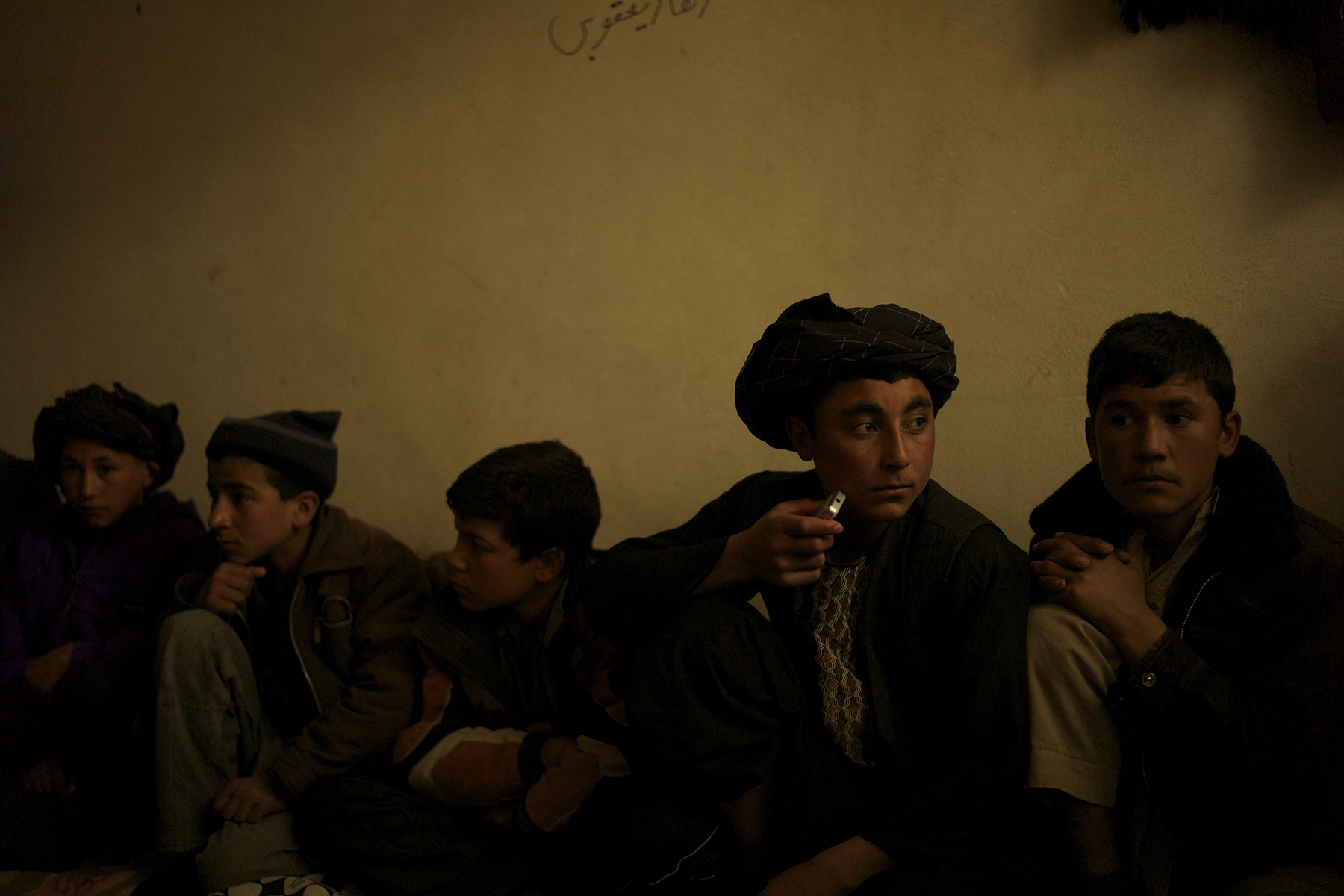
SE048
ZARANJ, AFGHANISTAN- MARCH 2012 Aged between eleven and fifteen, Israil, Naqibullah, Sanatullah, Qayum and Shah Mohammad sit nervously in a back street mosafer khana hours after arriving in the remote desert smuggling town of Zaranj. Given over by their parents to three elder travelers making their way to Iran, the young Uzbeki boys have been escorted on the road this far from their remote village in Maymana. Resting on dirty blankets in a small room of the concrete hotel block where the group of fourteen will spend the night, the children occasionally peek around the door towards the large, mustached agents as they load a car outside, packing it full of human cargo. Silent and still in the power outage, they have only twenty five year old Ali to turn to for guidance ahead of the long clandestine journey they are about to embark upon. ?The young ones will find work cleaning, making tea or in kitchens. It will be another four or five years until they can get proper jobs but they will still make more money than they ever could in Afghanistan and the situation will be better for them in Iran. I also left home when I was just twelve; it was difficult but I just had to even though of course I would have preferred to have grown up at home. We Afghans really have no chance to be children and must become men from such an early age?.

















